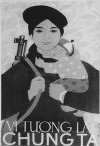Asia
Capitalism is preeminently a money-using system where a large part of wealth is held either in the form of money or as money-denominated assets, namely financial assets. For the system to work, it is essential that the value of money should not keep declining against commodities; otherwise people would move away from holding money, and it would cease to be not just a form of wealth, but even a medium of circulation.… Hence, capitalism seeks to ensure the stability of the value of money in a number of ways. One is the maintenance of a vast reserve army of labor, not just within the metropolis but also in the third world. | more…
The globalization of production and its shift to low-wage countries is the most significant and dynamic transformation of the neoliberal era. Its fundamental driving force is what some economists call “global labor arbitrage”: the efforts by firms in Europe, North America, and Japan to cut costs and boost profits by replacing higher-waged domestic labor with cheaper foreign labor, achieved either through emigration of production (“outsourcing,” as used here) or through immigration of workers. Reduction in tariffs and removal of barriers to capital flows have spurred the migration of production to low-wage countries, but militarization of borders and rising xenophobia have had the opposite effect on the migration of workers from these countries—not stopping it altogether, but inhibiting its flow and reinforcing migrants’ vulnerable, second-class status. | more…
The Institutional Architecture
Insofar as imperialism is about the struggle over and capture of economic territory (which must be broadly defined to include not just geographical territory such as land and natural resources, but also the creation of new markets, sources of labor, and forms of surplus transfer such as are reflected in intellectual property), these changes [in imperialism since the early 20th century] have created distant demands upon imperialist structures and processes…. [So] how can capital (which is increasingly global in orientation) generate the superstructures through which the transfers of value are ensured and the investment risks are moderated and contained? It will be argued that there has been an endeavor to resolve this by refashioning the global institutional architecture in ways that operate to increase the conditions of “stability” for large capital while increasing its bargaining power vis-à-vis working people and citizens, as well as nation-states and even smaller capitalist enterprises. | more…

As we write these notes in March 2015, the Pentagon’s official Vietnam War Commemoration, conducted in cooperation with the U.S. media, is highlighting the fiftieth anniversary of the beginning of the U.S. ground war in Vietnam, marked by the arrival of two Marine battalions in De Nang on March 8, 1965. This date, however, was far from constituting the beginning of the war. The first American to die of military causes in Vietnam, killed in 1945, was a member of the Office of Strategic Services (a precursor of the CIA). U.S. intelligence officers were there in support of the French war to recolonize Vietnam, following the end of the Japanese occupation in the Second World War and Vietnam’s declaration of national independence as the Democratic Republic of Vietnam. The French recolonization effort is sometimes called the First Indochina War in order to distinguish it from the Second Indochina War, initiated by the United States. In reality, it was all one war against the Viet Minh (Vietnamese Independence League). By the time that the Vietnamese defeated the French at Dien Bien Phu in 1954, the United States was paying for 80–90 percent of the cost of the war. | more…

In a letter to Vietnam War veteran Charles McDuff, Major General Franklin Davis, Jr. said, “The United States Army has never condoned wanton killing or disregard for human life.” McDuff had written a letter to President Richard Nixon in January 1971, telling him that he had witnessed U.S. soldiers abusing and killing Vietnamese civilians and informing him that many My Lais had taken place during the war. He pleaded with Nixon to bring the killing to an end. The White House sent the letter to the general, and this was his reply.… McDuff’s letter and Davis’s response are quoted in Nick Turse’s Kill Anything That Moves: The Real American War in Vietnam, the most recent book to demonstrate beyond doubt that the general’s words were a lie.… In what follows, I use Turse’s work, along with several other books, articles, and films, as scaffolds from which to construct an analysis of how the war was conducted, what its consequences have been for the Vietnamese, how the nature of the war generated ferocious opposition to it (not least by a brave core of U.S. soldiers), how the war’s history has been whitewashed, and why it is important to both know what happened in Vietnam and why we should not forget it. | more…
An Integral Component and Driving Force of Imperialism in the Phase of Monopoly-Finance Capitalism
According to Michał Kalecki, the imperialist system of the Keynesian era rested on a triangular structure that was composed of (a) state-financed military production (i.e., the military-corporate complex, often called the “military-industrial complex”), (b) media propaganda (media-corporate complex), and (c) a putative full-employment/welfare-oriented superstructure (Keynesianism) underpinned by the war machine, serving to justify it. Building on Kalecki’s work, John Bellamy Foster, Hannah Holleman, and Robert W. McChesney provided an updated version of the theory of imperialism of the monopoly-capital tradition by laying emphasis on the primary role of the above triangle in the restructuring and preservation of the contemporary imperialist system.. Expanding on their work, I argue that one of the most significant changes in the triangular structure of contemporary imperialism is in its third pillar, particularly with the abandonment of the welfare-oriented paradigm and the adoption of the neoliberal globalization project. | more…
The Case of Microfinance and NGOs
In 2006, a few months after the Nobel Peace Prize for Muhammad Yunus and Grameen Bank was announced, I was visiting Germany [where many] Germans…looked at it as a victory over neoliberalism. One German activist theatre group invited me to the show of their latest drama, Taslima and the Microcredit. The show was eye opening for me: I realized to what extent Grameen Bank had been misunderstood in the West, and how media campaigns and public relations activities, including embedded studies, created a myth around the Grameen Bank and Yunus.… The theatre organizers requested me to join a discussion following the show. Standing before a mesmerized audience, I had to tell them the hard truth with facts and figures. I said that, despite their best wishes, they were making a terrible mistake. Grameen had never been an alternative to the World Bank-pushed neoliberal economic model; rather, it was born and brought up as a necessary supplement to it. | more…
Many people think of cooperatives as small, locally owned businesses, such as groceries, cafes, or bicycle shops, where people can work in an equal and participatory non-capitalist organization. In reality, the U.S. co-op movement is tied to federal agencies whose agenda is promoting neoliberalism, both domestically and abroad, and the co-op movement itself has neoliberal leaders. Many co-ops in name are profit-driven capitalist corporations in practice. And even in the abstract, the co-op principles of smaller co-ops enable neoliberal cooperative politics. All of this, however, raises the question of what a co-op based on socialist values would be, and China’s Nanjie village provides a living example of that. | more…
The Role of Ecological Marxism and Constructive Postmodernism—Beyond the Predicament of Legislation
China is facing many serious environmental issues, including pollution in the air, groundwater, and soil. These problems have increased since China surpassed Japan as the world’s second-largest economy—and in spite of the Chinese government’s 2007 proposal to build an “ecological civilization,” and writing “ecological civilization” into the Chinese Communist Party’s (CCP) constitution in 2012. Take air pollution as an example; not long ago, cities such as Beijing, Tianjin, and Shanghai witnessed record-breaking smog. Concentrations of fine particulate matter (PM 2.5) reached more than forty times recommended safety levels. In China, up to half a million die each year because of air pollution, according to Chen Zhu, the former health minister of China.… What caused these serious environmental problems? A prevailing explanation is that China “lacks the rule of law”—especially environmental law.… Besides the legal issue, there are three factors responsible for China’s severe ecological crisis: (1) seriously underestimating the power of interest groups and the harmful consequence of capital; (2) the worship of growth or development; (3) an anthropocentric worldview. | more…
Recovering Histories of Internationalism
Judy Tzu-Chun Wu, Radicals on the Road: Internationalism, Orientalism, and Feminism during the Vietnam Era (Ithaca: Cornell University Press, 2013), 346 pages, $26.95, paperback.
The cover of Judy Tzu-Chun Wu’s Radicals on the Road features a sepia-toned photograph of Eldridge Cleaver raising his fist in a Black Power salute behind three Vietnamese women in combat helmets, one of whom is kneeling behind an anti-aircraft gun. While you have probably seen a similar photograph of Jane Fonda from her North Vietnam trip in 1972, images like that of Cleaver are less common, if circulated at all. In this second book by Wu, she documents three sets of journeys, like Cleaver’s, that have remained at the margins of both the scholarship and the popular memory of the antiwar movement. | more…
Problems Facing the Movement to International Governance
After the Snowden revelations, Internet governance has emerged from relative obscurity, involving only a small technical community, to occupy the center stage of human rights discourse and international relations.… Everyone agrees that digital technologies, including the Internet, are transformative technologies. They reorder society as a whole, as well as relations between society and individuals. But…[their] potential…has not been fully realized. A case in point: instead of the democratizing potential of the Internet, a few global corporations have created monopolies that are much bigger than those we have seen before, and this has happened in just two decades. What does this mean, for instance, for the plurality of media voices? We know that Internet advertising revenue in the United States, having previously overtaken the print media, has now overtaken even TV network advertising revenues. How did monopolies on such a scale happen, and happen so quickly? Does it have to do with the nature of the Internet? Or its architecture and governance? | more…
A Decade of Consecutive Growth or Stagnation?
China’s official statistics showed that the country’s grain production declined from 512 to 431 million tons between 1998 and 2003. However, according to the Chinese government, since 2004 it has achieved “ten years of consecutive growth” in grain production. According to the official statistics, China’s grain production reached 602 million tons in 2013, nearly 40 percent above the 2003 level.… While the official statistics claim grain production has grown rapidly, China’s surging imports of cereals and soybean suggest that its grain production has struggled to catch up with demand.… This article argues that China’s actual grain production levels may be substantially lower than the officially reported levels; in fact, grain production has stagnated since the late 1990s. | more…

